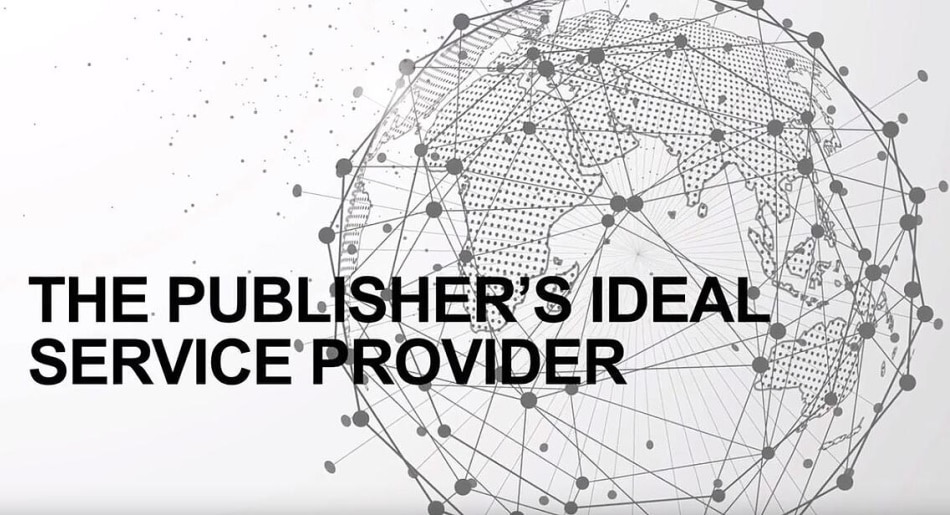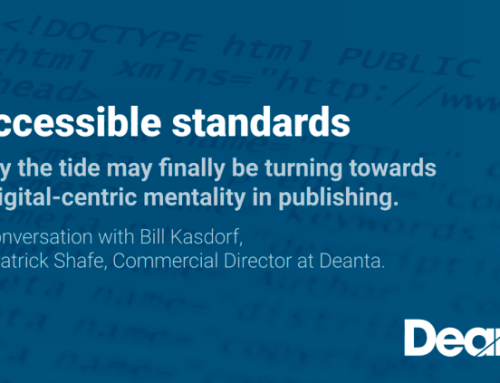The trend in bringing some publishing production processes closer to home has led to greater discussion around how these publishers should select a partner in onshore outsourcing. But why are some publishers seeking alternatives to outsourcing to hubs in emerging economies?
As discussed in our post on how publishers can fight fake news, pressing the truth has traditionally been a publisher’s key role, which is why greater quality control has become such an important issue. Outsourcing partners fulfil a very specific part in guaranteeing that a brand retains it’s reputation for well-produced content. There is no margin for error in publishing.
What do publishing services companies do?
Publishing services companies work in conjunction with book publishers to do certain tasks in the publishing chain. They offer editorial services, such as reviewing manuscripts for story, copyediting and formatting, artwork, and design, as well as distribution and book metadata marketing. They give publishers access to a specialised work force and essential business technology.
According to Bill Kasdorf, principal at Kasdorf & Associates (a consultancy focusing on accessibility, information architecture, and editorial and production workflows), the industry is on the cup of a golden age of publishing technology.
We have the opportunity to publish better than ever: better workflows, better products, better user experiences, ‘ he explained. ‘Yes, including print, but with the opportunity to produce, from a single workflow, whatever formats best suit our content and our markets, and to get content to our customers however they want.’
So much publishing technology has been around for ages, but much of it is still underutilized. For instance, as we’ve explored previously, the eBook is still under exploited medium, and machine-readable rights expression technology has been around for over 20 years (so not exactly new). By why can’t publishers pin down a business case for adopting new solutions and standards? Why aren’t publisher investing in better technology? It seems the industry is paralysed by it’s own potential.
What do publishing services bring to the table?
At this crosswords of rapidly changing technology and a general anxiety about truth and quality control in the media, publishers increasingly seek a middle ground between traditional in-house production and offshore outsourcing that dominated previous decades. Access to the cloud has revolutionised the business model, allowing onshore service options to occupy this space, and the benefits to publishers of teaming with blended on and offshore providers are not to be ignored:
1. Enhanced understanding of the client’s needs
When a publisher pairs with an onshore service provider, there is a common culture that may be lacking in dealings with solely offshore providers.
2. Integrated technology solutions
By the nature of the cloud, projects can be worked on in real-time by collaborators anywhere around the world. This affords an immediacy of access to everyone involved in a project, from authors and publishers to copyeditors and typesetters. And without the overheads of the traditional office space, publishers can pick a project’s team form the global workforce, no longer limited by geography.
3. Greater flexibility of options
Of course, the price of production will always be a consideration, but the nature of the work sometimes demands a blended approach. If certain elements of a project can be tackled by onshore vendors and others by offshore, publishers can tailor each project to that project’s needs and remain within budget.
4. Superior editorial quality
High editorial standards and access to onshore editing options (as required) ensure that content has its best chance of being understood and related to as the author intended.
5 . Professional project management
Communication is at the heart of any successful relationship. Clear and responsive communication allows projects to run seamlessly and without delays or misunderstandings, resulting in top-quality deliverables.
Here’s the kicker…
Many publishers are leaving money on the table by not monetising assets in a more granular way. Onshore and offshore publishing services help book publishers work smarter and faster by solving content, process, and technology problems. Even if you are already using them, have you viewed them holistically, in the context of your business as a whole? Doing this might reveal where and how you can make improvements to your workflows and editorial and production processes and target the most profitable market segments.
Other related articles and videos you may be interested in:
- What traditional publishers can learn from the rabble-rousers like Amazon?
- Onshore, offshore, unsure? We explore publisher-vendor partnerships
- Global Culture – The Culture of Copy Editing
- Today’s libraries, tomorrow’s museums?
- Will AI ever author?
- Is metadata missing from your publishing business sales strategy?
- How digital publishers can fight fake news?
For more discussions on the future of publishing in the digital age, visit our publisher’s hub. We have articles, videos and guides on the impact of AI, how publishers can generate better revenues, onshore and offshoring advice and lots more.












